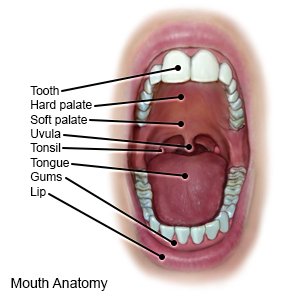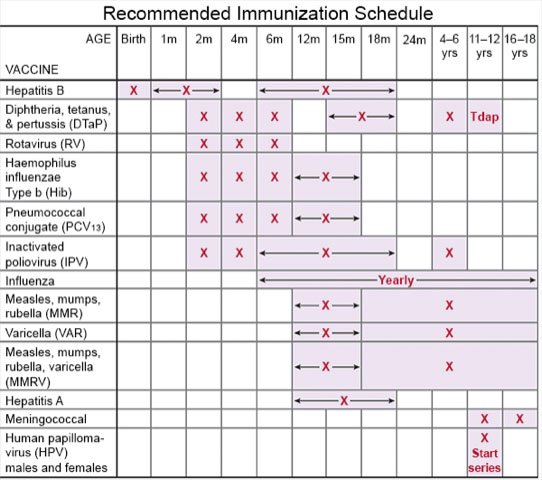Tonsillitis in Children
Medically reviewed by Drugs.com. Last updated on Aug 4, 2025.
Tonsillitis is inflammation of the tonsils. Tonsils are the lumps of tissue on both sides of the back of your child's throat. Tonsils are part of the immune system. They help fight infection. Tonsillitis may be caused by a bacterial or a viral infection. Recurrent tonsillitis is tonsillitis that happens at least 5 times in 1 year. Chronic tonsillitis lasts 3 months or longer.
 |
DISCHARGE INSTRUCTIONS:
Call your local emergency number (911 in the US) if:
- Your child suddenly has trouble breathing or swallowing.
- Your older child is drooling.
Return to the emergency department if:
- Your child is not able to eat or drink because of the pain.
- Your child has voice changes, or it is hard to understand his or her speech.
- Your child has increased swelling or pain in his or her jaw, or your child has trouble opening his or her mouth.
- Your child has a stiff neck.
- Your child has not urinated in 12 hours or is very weak or tired.
- Your child has pauses in his or her breathing when he or she sleeps.
Call your child's doctor if:
- Your child has a fever.
- Your child's symptoms do not get better, or they get worse.
- Your child has a rash on his or her body, red cheeks, and a red, swollen tongue.
- You have questions or concerns about your child's condition or care.
Medicines:
Your child may need any of the following:
- Acetaminophen decreases pain and fever. It is available without a doctor's order. Ask how much to give your child and how often to give it. Follow directions. Read the labels of all other medicines your child uses to see if they also contain acetaminophen, or ask your child's doctor or pharmacist. Acetaminophen can cause liver damage if not taken correctly.
- NSAIDs , such as ibuprofen, help decrease swelling, pain, and fever. This medicine is available with or without a doctor's order. NSAIDs can cause stomach bleeding or kidney problems in certain people. If your child takes blood thinner medicine, always ask if NSAIDs are safe for him or her. Always read the medicine label and follow directions. Do not give these medicines to children younger than 6 months without direction from a healthcare provider.
- Antibiotics help treat a bacterial infection.
- Do not give aspirin to children younger than 18 years. Your child could develop Reye syndrome if he or she has the flu or a fever and takes aspirin. Reye syndrome can cause life-threatening brain and liver damage. Check your child's medicine labels for aspirin or salicylates.
- Give your child's medicine as directed. Contact your child's healthcare provider if you think the medicine is not working as expected. Tell the provider if your child is allergic to any medicine. Keep a current list of the medicines, vitamins, and herbs your child takes. Include the amounts, and when, how, and why they are taken. Bring the list or the medicines in their containers to follow-up visits. Carry your child's medicine list with you in case of an emergency.
Care for your child:
- Help your child rest. Have your child slowly start to do more each day.
- Encourage your child to eat and drink. Your child may not want to eat or drink if his or her throat is sore. Offer ice cream, cold liquids, or popsicles. Help your child drink enough liquid to prevent dehydration. Ask how much liquid your child needs to drink each day and which liquids are best.
- Have your child gargle with warm salt water. If your child is old enough to gargle, this may help decrease his or her throat pain. Mix 1 teaspoon of salt in 8 ounces of warm water. Ask how often your child should do this.
Prevent tonsillitis:
Bacteria and viruses that lead to tonsillitis can spread through coughing, sneezing, or touching. The following can help prevent infections:
- Wash your and your child's hands often. Use soap and water every time. Teach your child how to wash his or her hands. Show your child how to rub his or her soapy hands together, lacing the fingers. Have your child wash his or her hands for at least 20 seconds. Have your child rinse with warm, running water and dry his or her hands with a clean towel or paper towel. Have your older child use hand sanitizer that contains alcohol if soap and water are not available.

- Teach your child to cover a sneeze or cough. Use a tissue that covers your child's mouth and nose. Teach your child to throw the tissue away immediately. If your child does not have a tissue, he or she should use the bend of his or her elbow.
- Prevent person-to-person spread of germs. Do not let your child share food or drinks with anyone. Have your child return to school, daycare, or other activities as directed. Your provider may want you to wait until your child's fever is gone for at least 24 hours.
- Ask about vaccines your child may need. Vaccines help protect your child from some bacterial and viral infections. Your child should get the influenza (flu) vaccine as soon as recommended each year, usually in September or October. Your child should also get a COVID-19 vaccine and recommended boosters. Your child's healthcare provider will tell you which other vaccines your child needs, and when to get them.

Follow up with your child's doctor as directed:
Write down your questions so you remember to ask them during your child's visits.
© Copyright Merative 2025 Information is for End User's use only and may not be sold, redistributed or otherwise used for commercial purposes.
The above information is an educational aid only. It is not intended as medical advice for individual conditions or treatments. Talk to your doctor, nurse or pharmacist before following any medical regimen to see if it is safe and effective for you.
Learn more about Tonsillitis
Treatment options
Care guides
Further information
Always consult your healthcare provider to ensure the information displayed on this page applies to your personal circumstances.
